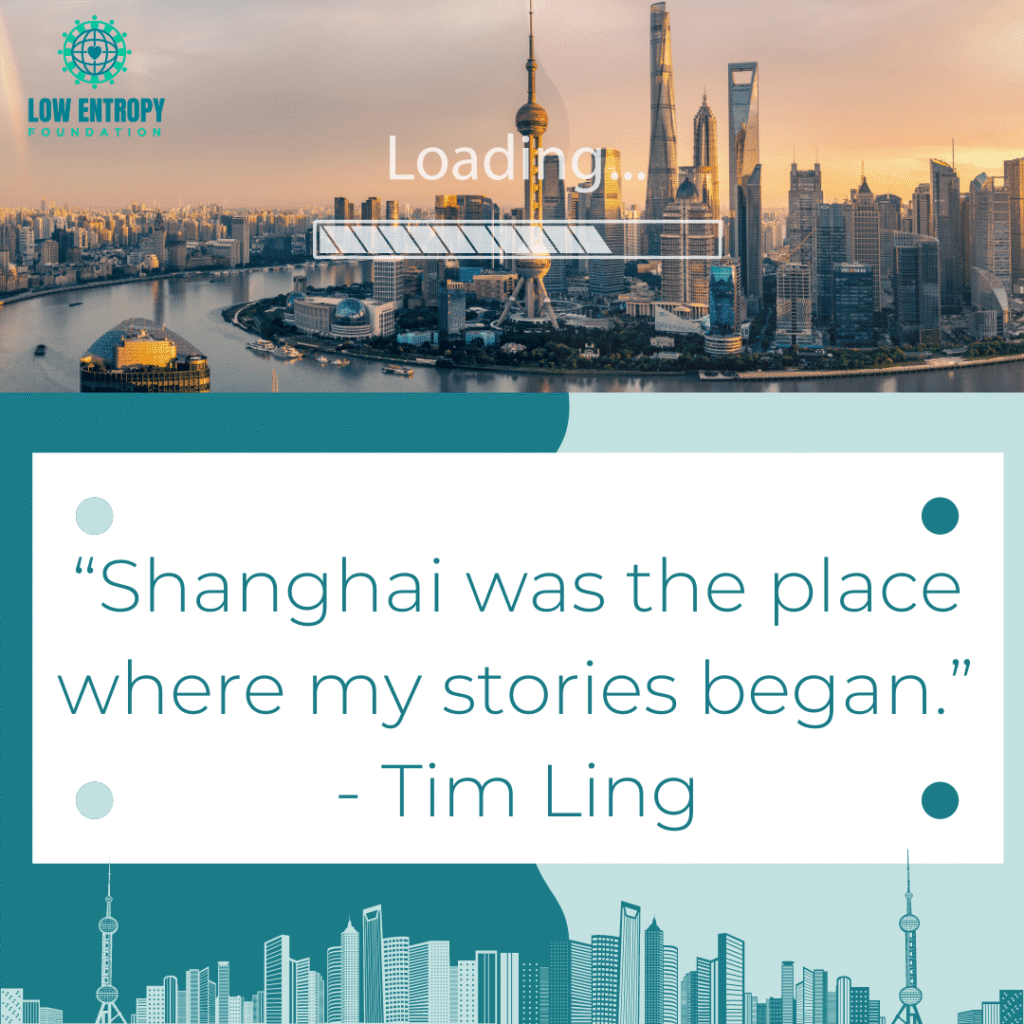Sewing Hearts
Cristina Crescenzo (she/her/hers), Low Entropy Volunteer Writer I believe that if there was an intro to self-confidence class offered to me at school, I would be the first one to sign up because I, like many other individuals, can be self-deprecating to a fault. It has gotten so bad that I use putting myself […]
Festival Days
Prateek Sur (he/him/his), Low Entropy Volunteer Writer In a fast-paced and growing Indian society, we are becoming more and more westernised. I am not saying that it’s a bad thing, but the influence has creeped in so much that there are certain things which we now prefer to do like the westerners do, and […]
From Jamshedpur
Low Entropy Volunteer Writer Prateek Sur shares details of his childhood and surroundings in Jamshedpur, a small city in India, and how they both shaped his life and career. The place where I grew up had an enormous effect on the way I think today as a mature adult. I grew up in the […]
To Shanghai, With Love

Born in the bustle of a densely packed, hyper-competitive metropolis, Low Entropy Volunteer Writer Tim Ling takes us back to a childhood spent meeting the onerous demands of an exacting academic system – not only giving us a taste of what it was like, but showing how crucial and enduring friendships were forged in its […]
